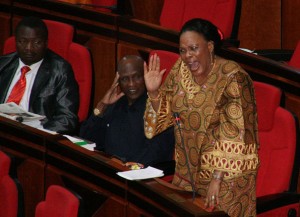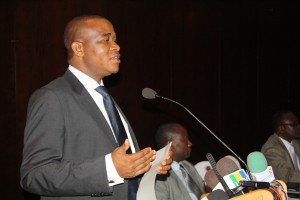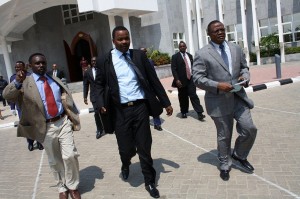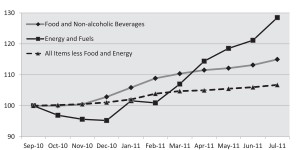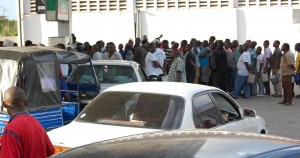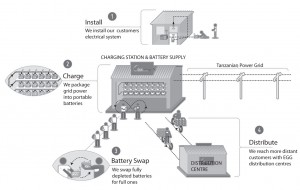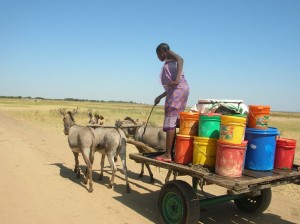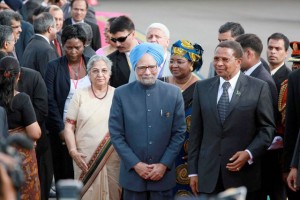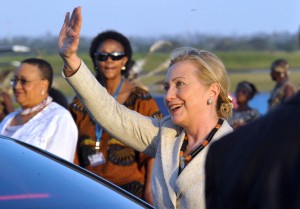They just will not go!
Citizen reporter Florence Mugarula raised the issue on many peoples’ lips in an article on July 29. She wrote: ‘In developed nations, leaders leave voluntarily when their governments run into trouble. In Tanzania, those responsible just will not go, even in the face of a crisis under their watch.
One exception to this rule has been former President Ali Hassan Mwinyi who in 1976, as a Minister, stepped down following the deaths in Shinyanga of people on remand, who were being investigated over the killing of witchcraft suspects.
The reporter went on to wonder why this President’s son, Dr Hussein Mwinyi continued to hold on to his position as Defence Minister despite the recent bomb explosions at army bases in Dar es Salaam. Why had Energy Minister William Ngeleja remained in office in view of the serious power rationing ?
By contrast, back in 1996, the then Finance Minister, Prof Simon Mbilinyi resigned over corruption allegations and, five years later, Minister of Industry and Commerce Iddi Simba resigned over an issue of sugar imports licensing.
The BAE Saga
No scandal in Tanzania has received as much attention as the BAE Radar case, both in Tanzania and in Britain. As this issue of TA is going to press Tanzania has still not received the £29.5 million which the British Senior Fraud Office had decided BAE should pay to Tanzania for the supply of an air traffic control system in 1999. The background has been explained in numerous earlier issues of Tanzanian Affairs. The sale provoked outrage at the time and BAE agreed finally, in February 2011, to pay back the £29.5 million to Tanzania.
In November 2010 the UK’s Department for International Development and the Tanzanian government drew up plans on how to spend the money. They agreed that it should be invested in education – £4.4m for school textbooks plus 192,000 desks, 1,196 teachers’ houses and 2,900 pit latrines. However, BAE then attached conditions before it would pay.
Both parliaments become involved. In Tanzania, MPs were angered by this and sent a delegation to UK in July 2011 to find out what was happening. One of the MPs said: “Every hour the money is sitting in the BAE bank account, is an hour preventing the children of Tanzania, from enjoying what is theirs. The kids are sitting on the floor; the teachers are sharing houses, the desks, the books, seven people using one photocopied book …..”
Meanwhile BAE indicated that it wanted to be involved in deciding how the money should be spent, and that it had appointed Lord Cairns to head an Advisory Board that would ‘guide the company as to the optimum means of applying the £29.5m for the benefit of the people of Tanzania in accordance with all applicable company policies.’ There were proposals that British NGOs might supervise the use of the money.
The Tanzanian response was swift. Foreign Affairs and International Cooperation Minister Bernard Mwembe said that Tanzania would not allow British NGOs, commissioned by BAE Systems, to operate in the country.
In the British House of Commons the Overseas Development Committee strongly criticised BAE for dragging its feet. It urged the company to pay the amount in full and raised the possibility of taking the matter back to court if the payment wasn’t made.
It questioned the right of the company to set up its own advisory board to decide on how the money should be spent – rather than give the money directly to the government of Tanzania, as Tanzanian MPs had requested.
Committee Chairman Malcolm Bruce MP asked whether it was not “offensive” for the company to suggest it knew better how to spend the money than the government of Tanzania. He advised BAE to hand over the money “as soon as possible”.
EPA Scandal – the latest
According to the Citizen on Sunday, in July, foreign donors started pressing the government to fully disclose the outcome of investigations into the TShs 133 billion External Payment Arrears (EPA) account scandal and prosecute all culprits. (Details in earlier editions of TA).
The donors included the African Development Bank, Canada, Denmark, the EU, Finland, Germany, Ireland, Japan, Norway, Sweden, UK and the World Bank, which are together providing some $450 million (TShs 678 billion) in budget support to Tanzania this financial year.
The lost sum was apparently siphoned out of the EPA account, which was under the watch of the Bank of Tanzania (BoT). It was fraudulently paid to 22 companies during the 2005/6 financial year. Fifteen people had been charged in court so far…….
The government has also been hard-pressed to explain why all those involved in the scam had not been prosecuted and to provide proof of the TShs 60 billion it said had been surrendered by suspects.
The Richmond case
The Citizen has reported the latest news on this case. In a surprising decision, the only person arraigned over the Richmond power scandal, which led to the resignation of the then Prime Minister, has been acquitted of forgery. It was alleged that in June 2006 a Mr Naem Gire forged documents that misled TANESCO’s Tender Board into believing that Richmond had the capability to produce 100MW of electricity.
This court decision has embarrassed the prosecution which had failed to prove that Mr Gire had a case to answer. The magistrate said she had evaluated each piece of evidence by the prosecution but found that everything regarding the documents was done by a Mr Mohamed Gire, a brother of the accused.
The Meremeta Company
Another issue worrying some MPs is the Meremeta Company. They have asked the government to tell the truth on the alleged billions of money lost. Chadema Shadow Minister for Defence and Security, Joseph Selasini, said a Select Committee should be formed to find out the truth, commenting “The opposition camp has been trying for the last five years to find out about the ownership of the Meremeta Company and we have received no satisfactory answers”. The Premier had once told the nation that this was a military company so no more details would be revealed – Nipashe.
The Opposition camp in the National Assembly also queried the decision by the Tanzania People’s Defence Force (TPDF) to sign a contract with Jeetu Patel, one of the key accused in the Bank of Tanzania EPA scandal. The contract was for importing power tillers from India for agricultural improvement in the country.

